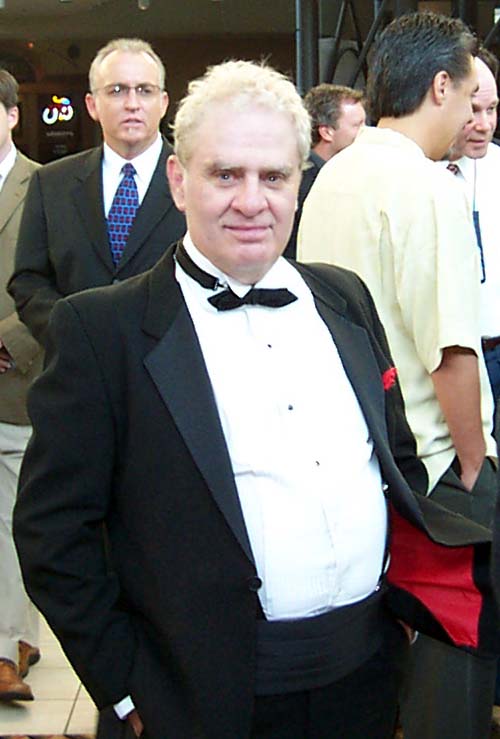The return of the Software Industry Awards is somewhat flawed.
As I wrote in a previous post, Software/Shareware Industry Awards are back, there were some questions yet to be answered about the Software Industry Awards under their new process and new name. In particular, I wondered whether a list of nominees, or at least software categories, would be published prior to the conference, being especially concerned about how (or even if) game software would be handled.
Unfortunately, neither names of nominees nor a list of software categories appeared prior to the Software Industry Conference at which they were awarded. This means that no software developers would attend the “Gala Networking & Awards Dinner” solely in support of nominated products. Apparently, the overall conference turnout was noticeably smaller than in recent years, too (which is not any sort of indictment, as I prefer smaller, more intimate gatherings).
I did also mention that “all questions should be answered” after SIC, but that was almost not the case, as the official list of SIA nominees and winners has not, to my knowledge, been published outside the Association of Software Professionals (and only within the ASP by unofficial sources). Aside from publishing the names of the software nominees beforehand, the conference organizers should also be proactive in promoting the results. (After more than a week, the awards winners should expect to at least be able to link to an official results page.)
The good news is that “GAMES” was one of the categories in which awards were presented (of only eight). The bad news is the nominees demonstrate a pretty serious misunderstanding of this segment of the industry. I applauded the positive idea that “the nominators are asked to consider only software and services offered by MicroISVs”, a concept that seems to have been seriously ignored. (I suppose that poor selections are better than none at all, which is what the educational software industry received.)
The SIA winner in the Games category was “Sam & Max” by Telltale Games. The problem, of course, is that Telltale is nowhere close to being a MicroISV; they have had (literally) millions of dollars from outside investors, and 67 employees listed on their Our Team page (including an old friend, Tom Byron). [I could also mention that “Sam & Max” is not a product, but rather a series of more than a dozen different episodes.] One of the other nominees was “Family Feud” by iWin, which is also far larger than any MicroISV, listed as the #4 casual software retailer in 2009.
Therefore, the winner in spirit is “Fantastic Farm” by Kristanix, which is a fellow ASP member and, according to the web site, consists of only two people, hence a proper MicroISV. Alas, this kind of victory comes with nothing of value, except perhaps this link to the Fantastic Farm page.
Here are a few more selected SIA results.
The winner in the “GRAPHICS SOFTWARE” category was “SnagIt” by TechSmith, a local company for which I worked briefly. I was actually the sole programmer on SnagIt way back in 1992-1993, developing (only) version 2.1. (They are now up to SnagIt 10, so I take zero credit.)
The winner in the “MULTIMEDIA MUSIC/VIDEO SOFTWARE” category was “Blaze Media Pro” by Mystik Media; our company once did some artwork for Blaze Media Pro (also many years ago).
The winner in the “PROGRAMMING TOOLS/UTILITIES” category was “Beyond Compare” by Scooter Software; this is a product that I use almost daily and is extraordinarily useful. (As a coincidence, I happen to be wearing one of their “What’s the DIFF?” t-shirts at this very moment.) I also use another nominee in this category, “CSE HTML Validator” by AI Internet Solutions.
Two nominees in the “ISV SERVICES” category also deserve mention: Freelance Works (Martha Seward), who helps promote our games published by Goodsol Development, and Software Promotions (Dave Collins), who use to do similar (but does not handle games anymore).
For those keeping score, the three remaining categories were “BUSINESS APPLICATION, DESKTOP”, “BUSINESS APPLICATION, SaaS”, and “INTERNET TOOLS”, for which I have neither the interest nor the time to write anything clever.
 IGDA Detroit, the Michigan chapter of the International Game Developers Association, will be having its April meeting tomorrow. As per the recently established custom, every other chapter meeting (even months) is a social event, or “pure networking” if you prefer, at an area establishment.
IGDA Detroit, the Michigan chapter of the International Game Developers Association, will be having its April meeting tomorrow. As per the recently established custom, every other chapter meeting (even months) is a social event, or “pure networking” if you prefer, at an area establishment.

